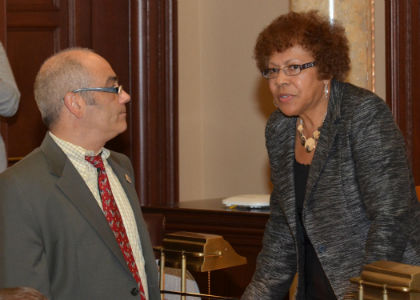
Would Recognize “Naturally Occurring Retirement Communities”
TRENTON – Legislation Senator Shirley K. Turner sponsored to create a pilot program in Mercer County to help seniors receive essential care and programs in their current neighborhood was today released by the Senate Health, Human Services and Senior Citizens Committee.
Called “naturally occurring retirement communities” (NORCs), they are communities that, while not originally designed for a senior population, have a large proportion of residents aged 60 and older that evolves naturally, as residents age in place. The NORC concept involves meeting the needs of residents living independently in their homes with coordinated health and transportation services.
“Seniors shouldn’t have to trade-in their homes for an assisted living facility or nursing home as they get older,” said Turner (D-Mercer/Hunterdon). “Allowing residents to stay in their homes as they age, close to their friends and neighbors, while ensuring access to vital services should be a shared goal. Embracing the NORC concept means recognizing the importance of community, the importance of dignity, and the importance of the home.”
Under the bill (A-353/S-1796) would provide $250,000 in pilot program funding through the state Department of Human Services to a partnering non-profit to provide coordinated health and transportation services within a recognized NORC in Mercer County — where at least 50 percent of the households are headed by a person who is 60 years of age or older — to foster a healthier population and permit individuals to remain in their homes.
Turner said the program could result in a Medicaid savings for the state as residents gain better access to preventative care.
“Not only can residents win by being able to stay in their homes, but the state and its taxpayers can win through a more efficient and effective allocation of its Medicaid dollars,” said Turner. “But we won’t know if we can achieve these outcomes unless we’re willing to give it a try.”
The measure now heads to the full Senate for a final legislative vote.

